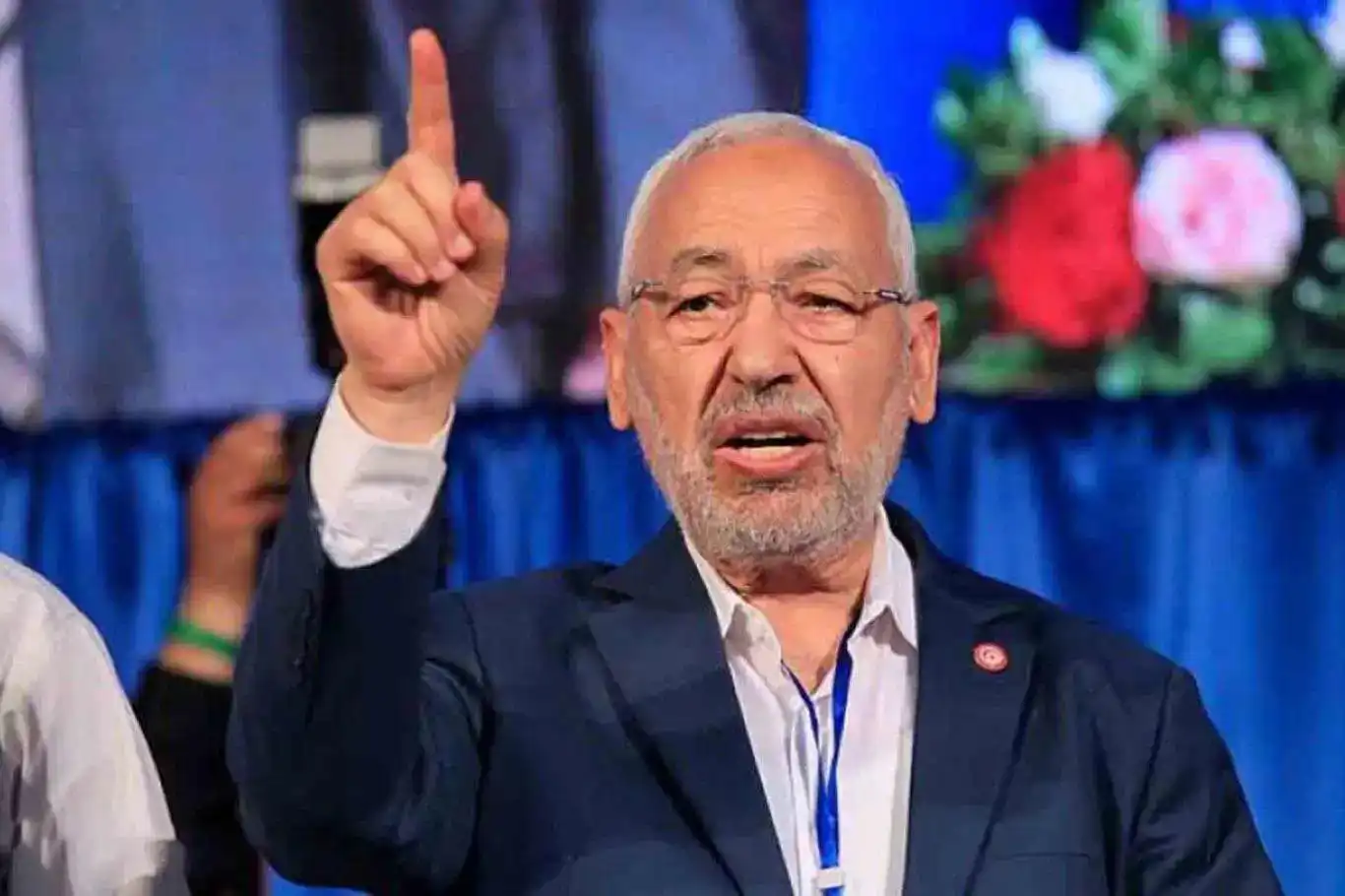Tunisian opposition leader Ghannouchi sentenced to 14 more years in politically motivated trial


Tunisian opposition leader Rached Ghannouchi has been sentenced to 14 more years in prison in what rights advocates and legal experts are denouncing as a politically motivated show trial aimed at silencing dissent.
The 84-year-old founder of the Ennahda party — once the largest political force in Tunisia’s post-revolution parliament — was convicted along with 17 others on Tuesday for what authorities dub “conspiring against state security.” The vague charge is part of a pattern of legal persecution leveled against critics of President Kais Saied, who has dismantled Tunisia’s democratic institutions since seizing near-total power in 2021.
Ghannouchi, already imprisoned since 2023, refused to attend the hearing, rejecting a remote trial in protest of what his legal team condemned as a process devoid of due process and transparency. With this new ruling, his cumulative prison terms now exceed 20 years, including prior sentences over similarly contested accusations of money laundering.
Rights groups and international observers have long warned that Ghannouchi’s persecution is emblematic of a sweeping crackdown on Tunisia’s opposition and civil society. Since President Saied’s suspension of parliament and subsequent power grab four years ago, dozens of political opponents, journalists, lawyers, and even online critics have been jailed under an expanding authoritarian regime.
Adding a chilling new dimension to the crackdown, Ghannouchi’s own children — Mouadh and Tasnim — were also sentenced to 35 years in absentia, despite having fled the country. Former Foreign Minister Rafik Abdessalem Bouchlaka and ex-intelligence chief Kamel Guizani were similarly convicted in absentia, drawing further outrage from exiled Tunisian political figures.
“This isn’t justice — it’s a political vendetta dressed in the language of the courts,” said one human rights observer, noting that the trials violate even the most basic standards of impartiality and legal fairness.
Despite the international condemnation, President Saied has defended his regime’s draconian measures as necessary for rooting out corruption and restoring order. Critics, however, see this rhetoric as a smokescreen for dismantling Tunisia’s hard-won freedoms — the very freedoms that inspired the Arab Spring and once gave the region hope for democratic change.
As Tunisia descends further into repression, the fate of its democratic revolution — and the freedom of one of its most prominent champions — hangs in the balance. (ILKHA)
LEGAL WARNING: All rights of the published news, photos and videos are reserved by İlke Haber Ajansı Basın Yayın San. Trade A.Ş. Under no circumstances can all or part of the news, photos and videos be used without a written contract or subscription.
A Gaza-bound humanitarian boat carrying medical aid and international activists docked in the southern Italian port city of Gallipoli on Wednesday, in the latest leg of its mission to break the illegal Israeli blockade on the besieged Gaza Strip.
The Turkish Ministry of Foreign Affairs has confirmed that Foreign Minister Hakan Fidan will participate in an informal meeting on the Cyprus issue, scheduled to take place in New York on July 16–17, 2025.
Intense firefighting efforts are ongoing across northwestern Türkiye as wildfires that erupted in Tekirdağ’s Şarköy district spread rapidly into the Gelibolu region of Çanakkale province, while a separate blaze continues to burn in Ayvacık district.
The Yemeni Armed Forces have announced a series of successful military operations targeting Israeli military and commercial interests, marking a significant escalation in Yemen’s regional response to the Israeli regime’s ongoing war on Gaza.